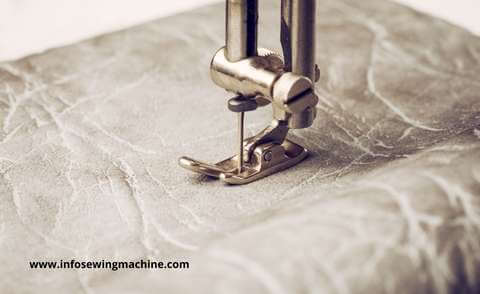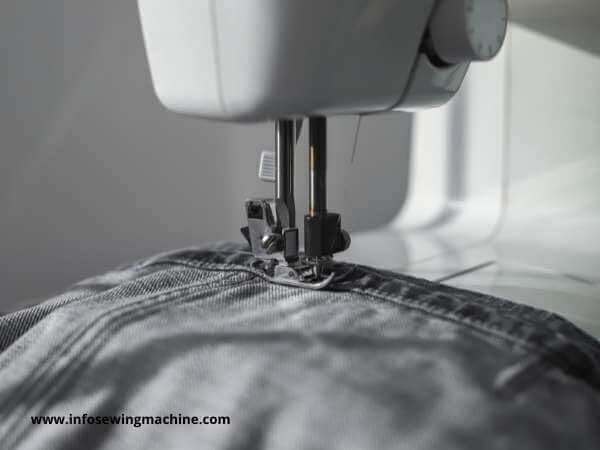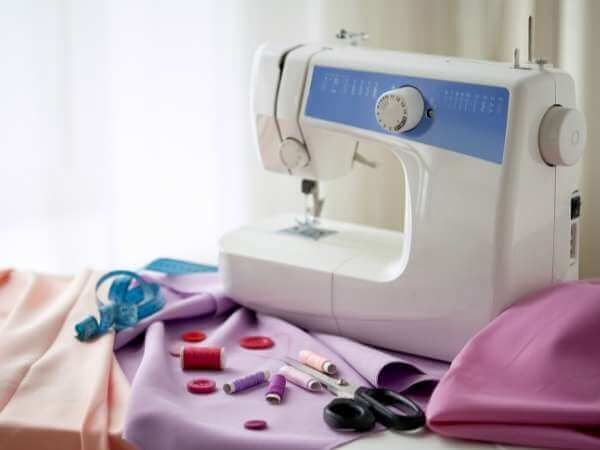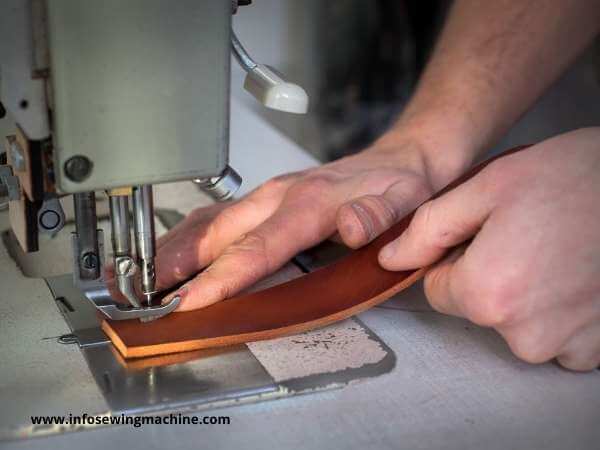Are Sewing Machine Needles Universal – An Ultimate Guide

There are a lot of Sewing Machine Needles available on the market, so which type is right for you? Well, that depends on whether you want to sew a garment or some non-garment.
“Sewing machine needles vary wildly in size, shape, weight, and length.” This is true for most needles—the only exception being straight needles. What makes sewing machine needles so hard to categorize? Most people think they are all the same. So a question arises in mind Are Sewing Machine Needles Universal? After all, a sewing machine needle is very important, which has to go into a sewing machine and make a hole in a piece of fabric to sew. So it’s important to figure out the information about Sewing Machine Needles.
Some sewing machine needles come with little instruction manuals while others have instructions, but do they all have universal needles? In the blog post, we will discuss the types of sewing machine needles and Are Sewing Machine Needles Universal Or Not?
What Is A Sewing Machine Needle?
A Sewing Machine Needle is a small metal device that runs through a sewing machine’s throat plate and pushes thread through the sewn fabric. It is a inexpensive and simple compulsary equipment of Sewing Machine. Most sewing machines are equipped with just a single needle.
Parts Of A Sewing Machine Needle
The most obvious type of Sewing Machine Needle comprises four parts: a shaft, a point (a Needle Point is of 3 types Ball Point, set Point, and Wedge Point), a helix, and an eye.
Most Sewing Machine Needles are made of Stainless Steel or Aluminum and have a pointed end and flat sides, making them easier to insert into fabric. Some of the more expensive sewing machines also come with a built-in needle that fits into the machine’s needle plate. When you change a sewing machine needle, make sure you remove the old one first, then insert the new one in the machine in the same position the old one had been.
Types Of Sewing Machine Needles
There are many types of Needles For Sewing Machines, each with its purpose. Most sewing machine needles have a solid core encased by either a steel or a plastic sheath, and some have a threader.
Special sewing needles, such as quilting needles, are designed for stitching pieces of fabric together. You’ll also find various sewing needles in different applications, including jewelry making, embroidery, and needlepoint. Here’s a quick breakdown of the types of needles available to you:
01. Universal Needles
These Needles are mostly used in sewing because they work on fibers like Natural and Synthetic. Knitted or woven fabrics, synthetic fabrics, suede, and leather are great for sewing with Universal Needles. For medium to heavyweight fabrics, larger sizes of the universal needles are used. For lightweight fabrics, Finer Universal Sewing Machine Needles are used.
02. Selfthreaded Or Handicap Needles
These needles are almost the same as Universal Needles. These needles come with an open slot which makes threading easy. So these kinds of needles are also comfortable for people who feel difficulting threading the needle.
03. Stretch Needles
To prevent skipped stitches, Stretch Needles are used on stretch knits. These needles are used to sew Elastic Fabric, Silk Jersey, Power Net, Lycra, and Two Way Stretch Knits. This kind of fabric is the most difficult to sew, but Stretch Needles are best for dealing with the Skipped Stitch problem.
04. Denim or Jeans Needles
These needles are not specifically designed for denim but are also good for densely woven, tough fabric and working through many layers of fabric. These needles come in large sizes and are dense.
05. Leather Needles

Leather Needles make leather sewing very easy as these are designed with a slightly twisted cutting edge. These cutting edges pierce through the fabric and make it easy to sew. These are good for sewing vinyl and leather suede.
06. Embroidery Needles
These needles work well with Cotton Machine Embroidery Threads, Polyester, and Rayon. These needles have wider eyes and easy-to-handle dense machine embroidery stitching. These needles are capable of holding fabric movement and make sewing embroidery easy.
07. Ballpoint Needles
These needles work with low-stretch fabric like Knitted and Woven fabric. Ballpoint Needles easily glide between knitted and woven fabric loops and make sewing easy. These needles are also used to sew Polyester and Cotton.
08. Metallic Needles
These needles have large eyes and work well to sew with Metallic Threads and other Embroidery threads. These needles can feed thread freely and eliminate the risk of thread splitting during fast sewing motion.
09. Jersey Needles
Jersey Needles have rounded tips, making them easier to pass through fabrics. Jersey needles work well for any fabric that stretches, without causing holes.
10. Topstitch Needles
These needles are designed to work with thick thread. These come with double eye size than the eyes of the normal needles. These needles can work through many layers of fabric without breaking.
11. Twin and Triple Stitch Needle
These needles are specially designed to sew hems on stretchy fabric, but these are not compatible with all types of Sewing Machines. These needles are also good for Decorative sewing Stitches.
12. Microtex Or Sharp Needles

These needles are sharper than Universal Needles and can sew through many layers of fabric. These are good for making smooth Buttonholes. Sharp Needles are good for sewing Silk, Applique, Thin Vinyl, and tightly woven fabrics.
13. Quilting Needles
These needles are good for working on bags as they can sew through many layers of fabric. These needles provide smooth stitching as well as quick stitching.
14. Wing Needles
Wing Needles are a popular knitting needle size. They have flared wings on the shaft’s sides, making them good for projects.
These are needles, making holes in the fabric like embroidery thread. These needles are good to use for heirloom sewing. Embroidery is used to create decorative stitches and heirlooms on fabrics made from natural fibers such as cotton.
Size Of Sewing Machine Needles
When choosing sewing machine needles, there are two primary concerns, size, and type. The size determines how big the needle is. Type tells what metal (usual steel) the needle is made of. To determine what size needle to use, you need to determine how thick and wide the fabric you’re working with is.
The size of sewing machine needles varies widely in different applications. Small needles work better for fine fabrics such as knit or embroidery, while large needles do better on thick or stiffer fabrics.
They also function differently. Small needles are usually straight. They have a long shank that runs through the eye of the needle. They can be used for sewing threads together or for attaching the ribbon. They’re best used when you need a very fine line stitch. These needles are most often made of steel. Large needles are commonly made of nylon, but some people use aluminum. They’re typically curved to create the thread-holding groove. Their shorter shanks enable them to sew heavy or bulky materials.
Needle sizes are measured in two ways, using the European and American measurement systems. The size of the needle in the American system is represented as a percentage of a millimeter.
Are Needles Magnetic?
There is no science behind this myth; it’s a common belief. But there’s no truth to it. Magnets are so strong that they could pull the needles right out of a sewing machine, rendering the machine useless until someone replaces the needles.
In the past, sewing machine needles used to be made of pure steel, but today, all the new ones are magnetized, making them strong and safe. If you see a Sewing Machine with Magnetized Needles, this should be a good indicator that the machine has been refurbished and is ready for use.
Are Sewing Machine Needles Universal
Some Sewing Machine Needles are Universal, but most sewing needles come in different lengths and thicknesses and are either round or have a flat, pointed end. The larger, thinner needles are used for stitching fabric together. In contrast, the smaller, thicker needles are used for finishing seams on knitted fabric, sewing knits together, and repairing torn seams on knits.
They come in various sizes and gauges, depending on how you use them, the material you’re sewing, and the thread size. But aside from the basic look of the needles, the type of needle used can significantly affect how well your stitches are created. That’s why it’s so important to find a needle designed specifically for the type of sewing you do, because if your needles are not the correct size and shape, your results may vary widely.
Conclusion | Are Sewing Machine Needles Universal
The best answer to “Are Sewing Machine Needles Universal?” depends on your type of sewing machine. Sewing machine needles are not universal, and each machine has a different set of compatible and non-compatible sewing machine needles. Most of the time, the needle set in your sewing machine will be compatible with the other needles in your machine.
The correct needle type depends on the fabric you are sewing. You need to match the thread to the fabric. For the best results, always buy only from reliable manufacturers or a Store. Remember, it’s cheaper to replace a needle than to ruin the entire piece of fabric, so it pays to take good care of your sewing machines.
I hope this guide shows you what to look for in a needle to ensure that it will work well with your machine.
FAQs | Are Sewing Machine Needles Universal
What are sewing machine needles?
Sewing machine needles are the small metal pieces that fit into the needle holes of a sewing machine and are used to sew fabrics together. These are available in different sizes and types.
How to choose a sewing machine needle?
You can choose a sewing machine needle according to the fabric type to be sewn because correct needles give precise sewing.
Are sewing machine needles universal?
All sewing machine needles are not universal. Some are for specific fabrics such as cotton, polyester, and nylon. Some of made to sew leather, while some work well with denim, jersey, silk, etc.
How does a sewing machine needlework?
A sewing machine needle works by pulling the thread through the fabric by making a strong loop.





